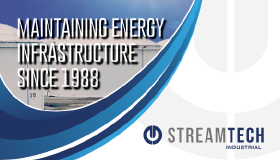Accenture is using a proprietary database powered by artificial intelligence (AI) to help Colonial Pipeline, the largest refined products pipeline in the US, reduce regulated and deregulated electric utility rates for its interstate pipeline system.
The energy-management project leverages Accenture’s Utility Tracking System (UTS), a proprietary database of approximately 30 million anonymised utility bills that the company has been aggregating for more than 20 years. Built to identify power tariff options around the world, UTS uses AI-powered insights and automation as part of Accenture’s SynOps platform to continuously improve the efficiency and reliability of electricity rate-savings recommendations.

Accenture is using insights generated by UTS to evaluate power bills for operations at approximately 80 Colonial Pipeline pump stations along its 5500-mile pipeline system, which delivers approximately 100 million gallons of refined petroleum products daily to markets in the Southern and Eastern US. Armed with information about tariff options, Accenture presents lower-cost options – e.g., reduced cost per kWh – to Colonial Pipeline, and then works with utilities to help implement new rates.
“This initiative, which is part of our ongoing effort to optimize utility rates, has shown encouraging results early on and should continue to help us in our comprehensive review of all utility accounts on our system,” said Tony Leo, manager of energy management and power optimization for Colonial Pipeline. “We look forward to our continued partnership with Accenture as we identify opportunities to transition to renewable energy to power our pump stations.”
Yusuf Tayob, group chief executive of Accenture operations, added: “Our work for Colonial Pipeline is a great example of how Accenture’s long-term investments in technologies are helping clients deepen business resilience amid evolving market conditions. We look forward to making further progress on this project and to helping Colonial Pipeline evaluate how it can buy green energy, which increasingly is powering infrastructure as consumers and stakeholders demand cleaner air and less environmental impact.”
For more information visit www.accenture.com















